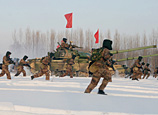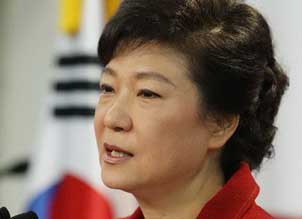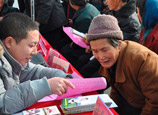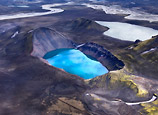
NO RESET, NO FOES
Putin was asked by several reporters about the anti-Magnitsky Act passed by the Russian parliament Wednesday.
In emotional exchanges with the audience, Putin said the controversial bill was not aimed at punishing U.S. foster-parents but the authorities and policy makers.
"What Putin said on that topic is mostly a political game. He knows it pretty well the bill he may sign shortly would not seriously affect the U.S.-Russia ties," Sergei Karaganov, dean of Moscow's High Economic School, told Xinhua.
Putin said he did not use anti-American rhetoric, but still cannot let anyone offend Russia with impunity.
"Reset is not our word, we didn't see the need in it at all, our relations used to be good enough," Putin said.
"We are not enemies, we need to look for compromise though it worsens our relations, but we need to safeguard national interests," Putin stressed.
Putin said the United States made serious mistakes in Libya and Russia was not going to repeat them in Syria. Russia was not concerned with the fate of President Bashar al-Assad's family, but hoped Syrians could stay integrated and launch the political settlement as soon as possible.
SIGNALS FROM ABROAD
Putin said Moscow heard positive signals from Georgia and Japan, the two countries that Russia has had uneasy relations with.
Admitting that Moscow has no ready-tailored proposal on how to normalize relations with Tbilisi and can't retreat from the recognition of Abkhazia and South Ossetia, Putin said Russia-Georgia ties should be resumed.
"Still, since the problem cannot be solved directly, it could be bypassed. In this respect, Moscow could deal with Georgia in the same way it deals with Japan -- restoring normal economic and humanitarian relations in the absence of diplomatic ties, in case of Tbilisi," Karaganov said.
He referred to Putin's words that Moscow has received signals from the new Japanese government about its intention to sign a peace treaty with Russia.
Yelena Yatsenko, president of the Eurasia Heritage Foundation, said relations with Georgia were a difficult issue for Moscow.
"The stalemate between Russia and Georgia could last for a long time, until the new generation of Georgians comes to power. Current generation cannot forgive Russia's recognition of the independence of Abkhazia and South Ossetia," she told Xinhua.
Georgia cut off diplomatic relations with Russia after a brief war between the two countries in August 2008 over control of the Georgian breakaways of Abkhazia and South Ossetia.















 Bone-chilling cold, but lots of fun!
Bone-chilling cold, but lots of fun!


![]()
